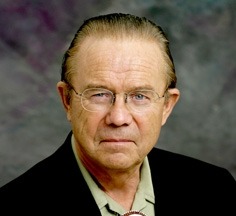Wells Technology & Wells Academy
Purpose Prize Fellow 2011
Wells trains economically disadvantaged Native Americans as machinists to help them secure jobs.
Andy Wells grew up on a dairy and grain farm on a reservation in northern Minnesota. A poverty-stricken area home to the Red Lake Band of Chippewa Indians, it lacked both good schools and a thriving job market. Wells nevertheless managed to get a master’s degree and forge a successful career in industrial technology, first as an engineer, then as a professor at Bemidji State University and finally as founder of Wells Technology, which designs and manufactures aeronautic, robotic and automation technology for clients in 54 countries.
Wells’ humble beginnings motivated him to create employment and educational opportunities for the next generation of Native Americans through the nonprofit Wells Academy, an apprentice training program founded in 2005. The yearlong, full time course aims to train students in the equipment, tools and skills they’ll need to get jobs as machinists. The training includes machining operations, tooling, project bidding, computer programming, quality control and supervision.
Native Americans represent only 5 percent of the workforce. Wells Academy aims to change that figure, as there are skilled labor opportunities in the manufacturing sector. The academy’s program boasts a 90 percent employment retention rate for its graduates.
Though he’s always been civic-minded, Wells felt strongly about the need to help his own community: “I gave back to typical groups such as the Red Cross, Girl Scouts and United Way,” he says. “Yet, when I looked a little deeper at our community, I saw needs all around me.”




